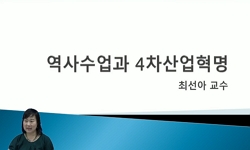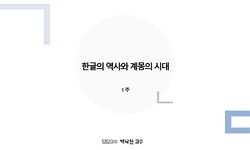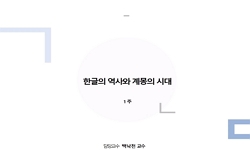In recent years, Korean researchers of Chinese Modern Literature have increasingly questioned the validity of Chinese New Era’s enlightenment discourse which has been dominantly influential since the 1980s in Korea. In order to overcome the narrativ...
http://chineseinput.net/에서 pinyin(병음)방식으로 중국어를 변환할 수 있습니다.
변환된 중국어를 복사하여 사용하시면 됩니다.
- 中文 을 입력하시려면 zhongwen을 입력하시고 space를누르시면됩니다.
- 北京 을 입력하시려면 beijing을 입력하시고 space를 누르시면 됩니다.

문화대혁명은 사상계몽운동이었는가? ―한 조반파의 문혁 연구에 대한 비평적 읽기 = Was Cultural Revolution an Enlightenment? --A Critical Reading of a Rebel's Dissertation on the Cultural Revolution
한글로보기https://www.riss.kr/link?id=A108201315
- 저자
- 발행기관
- 학술지명
- 권호사항
-
발행연도
2022
-
작성언어
-
- 주제어
-
KDC
900
-
등재정보
KCI등재
-
자료형태
학술저널
- 발행기관 URL
-
수록면
65-86(22쪽)
- DOI식별코드
- 제공처
- 소장기관
-
0
상세조회 -
0
다운로드
부가정보
다국어 초록 (Multilingual Abstract)
In recent years, Korean researchers of Chinese Modern Literature have increasingly questioned the validity of Chinese New Era’s enlightenment discourse which has been dominantly influential since the 1980s in Korea. In order to overcome the narrative of Enlightenment, they started to focus on the ideological aspect of the Cultural Revolution (CR), which is naturally contributable to the redefinition of enlightenment that has been exclusively related to the May Forth so far. This paper reviews Lin Weiran’s Ph.D. dissertation An Abortive Chinese Enlightenment: The Cultural Revolution and Class Theory (1996).
First, Lin Weiran (1996) describes the CR as ideological movement led and engaged in by the mass (renmin qunzhong), and the movement was characterized by political activities such as intense debates in everyday life. In this sense, Lin claims the CR as nothing less than Chinese enlightenment. Lin’s work helps Korean researchers secure specific and prolific historical resources to redefine the CR as an ideological revolution, consequently resolving the problem of integrating enlightenment and Mao’s mass line.
Second, Lin highlights the role of the former Rebels in the Democracy Wall Movement (1978-1982). The Red Guard radicalism--‘theory of a new class’, which is reguarded as the core of ‘new intellectual trend’ (xin sichao) by Lin, criticizes a new bureaucratic class or the speical privileged class in PRC. Lin argues that ‘theory of a new class’ is an important starting point in explaining the Democracy Wall Movement activists’ democratic arguments.
Last but not least, Lin overlooks radical innovations of system during the CR. As a result, Lin fails to address or account for Mao’s dilemma between revolutionizing and governing the country.
동일학술지(권/호) 다른 논문
-
- 한국외국어대학교 중국연구소
- 王莉宁 ( Wang Lining )
- 2022
- KCI등재
-
- 한국외국어대학교 중국연구소
- 张雪君 ( Zhang Xuejun )
- 2022
- KCI등재
-
- 한국외국어대학교 중국연구소
- 尚玉洁 ( Yujie Shang )
- 2022
- KCI등재
-
미래 전망에 따른 중국 국유기업의 투자행위변화와 그 효과에 관한 연구
- 한국외국어대학교 중국연구소
- 이기영 ( Lee Kiryoung )
- 2022
- KCI등재




 KCI
KCI KISS
KISS







